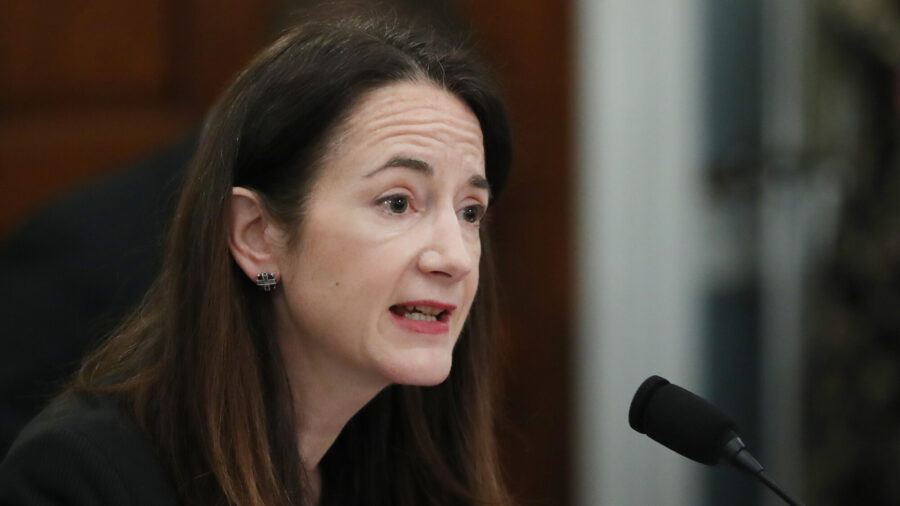The U.S. director of national intelligence (DNI) said this week that the intelligence community has seen “indications” that Beijing is attempting to influence the World Health Organization’s (WHO) investigation into the origins of COVID-19.
Director of National Intelligence Avril Haines made the remarks during a Senate Select Committee on Intelligence hearing on the topic of worldwide threats, after Rep. Brian Fitzpatrick (R-Pa.) asked her whether the United States has concerns about the Chinese Communist Party’s (CCP) relationship with the WHO.
“We’ve certainly seen indications that China is trying to influence the World Health Organization’s efforts in this area,” Haines responded, declining to elaborate further.
It comes after the United States on March 30 joined more than a dozen other nations to express shared concerns about a WHO study into the origins of the CCP virus, pointing to the report’s delay and lack of access to crucial data.
“Together, we support a transparent and independent analysis and evaluation, free from interference and undue influence, of the origins of the COVID-19 pandemic,” a joint statement signed by the governments of Australia, Canada, the Czech Republic, Denmark, Estonia, Israel, Japan, Latvia, Lithuania, Norway, South Korea, Slovenia, the United Kingdom, and the United States said.
“In this regard, we join in expressing shared concerns regarding the recent WHO-convened study in China,” the statement continued, acknowledging the importance of the international mission into the Chinese megalopolis of Wuhan, where the CCP virus first emerged, but also emphasizing that the study was “significantly delayed” and lacked access to “complete, original data, and samples.”
The CCP has been criticized for its handling and lack of transparency over the pandemic. Beijing for months rejected calls for an international probe and it wasn’t until this January that a WHO-led team of foreign experts was allowed to conduct a 2-week study in Wuhan and exchange information with their Chinese counterparts.
The 10-member team was met with obstructions after their arrival. Two members were denied entry into China due to visa issues, which Chinese foreign ministry spokesperson Hua Chunying attributed to a “misunderstanding.” Another team member, Australian microbiologist Dominic Dwyer, revealed that they had requested raw patient data on 174 cases identified by the Chinese health authority in December 2019 around Wuhan’s wildlife market, as well as other potential earlier cases, but were only provided with a summary.
Late last month, WHO Director-General Tedros Adhanom Ghebreyesus said that the team’s investigation, which rated the theory that the CCP virus escaped from a lab as “extremely unlikely,” wasn’t extensive enough.
The probe, rather, concluded that the theory that the CCP virus jumped from bats to humans via an intermediary animal was “most likely.”
Tedros added that the laboratory leak hypothesis requires “further investigation.”
When asked by Fitzpatrick whether the United States agrees with Tedros on the matter, Haines declined to comment, saying that it is not her area.
“We do not make the assessment that the WHO report made—that it’s exceedingly unlikely, I believe is their language, or extremely unlikely. That is not our assessment,” Haines told the Republican lawmaker.
Haines noted that the intelligence community is probing the possibilities of both a lab leak and the virus being of natural origin.
“I think at this stage, again as Director Haines said, this is something that we’re analyzing with the benefit of all the various sources that the intelligence community can bring to bear. … That is not an assessment that we’re prepared to make at this point. We’re weighing both of the options,” added CIA Director William Burns.
Haines said that she couldn’t pinpoint the blame on Beijing for the pandemic as the intelligence community doesn’t have a “clear, high-confidence assessment of how this occurred.”
GQ Pan contributed to this report.
From The Epoch Times


